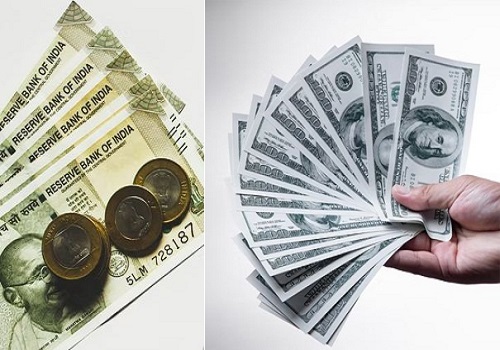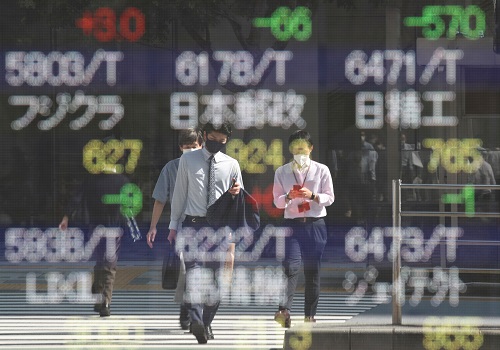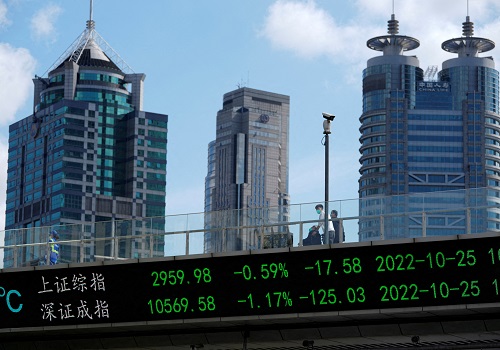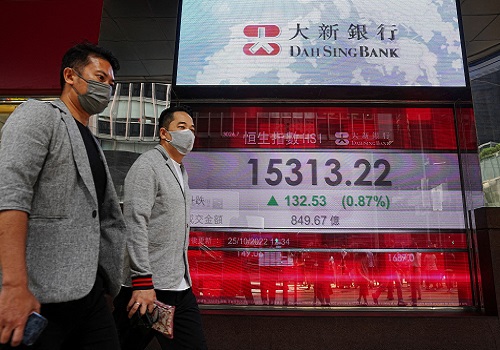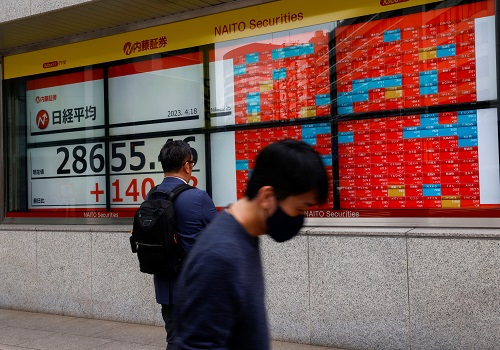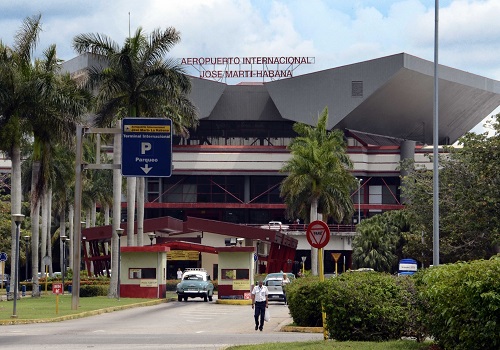Asian stocks slump, dollar shines as inflation fears flare

Follow us Now on Telegram ! Get daily 10 - 12 important updates on Business, Finance and Investment. Join our Telegram Channel
TOKYO - Inflation fears pressured Asian stocks and buoyed the dollar at an almost 16-month high on Thursday after U.S. consumer prices surged at the fastest pace since 1990, boosting the case for faster Federal Reserve policy tightening.
However, the region's biggest markets in mainland China and Japan bucked the trend, supported respectively by easing worries about troubled property developer Evergrande and a weaker yen, which helps Japanese exporters.
Regional bond yields tracked a surge in U.S. Treasury yields overnight, when the U.S. benchmark 10-year yield leapt by the most since February. At the same time, U.S. real yields, which take inflation into account, dipped to record lows.
Inflation expectations soared, with the five-year breakeven inflation rate hitting a record 3.113%
"The inflation numbers surprised on the upside, and they may not even be the peak," said ING economist Rob Carnell.
"The market thinks the Fed, and most other central banks, are behind the curve," meaning a more rapid tightening than policy makers have so far communicated, he said. "Risk assets hate this."
MSCI's broadest index of Asia-Pacific shares outside Japan slid 0.57%.
But Chinese blue chips rallied 1.28%, led by real estate stocks, with a source telling Reuters some Evergrande bondholders received overdue coupon payments, easing concerns about a potentially destabilising default.
Japan's Nikkei was another outlier, climbing 0.6% as the yen weakened as far as 114.15 per dollar on Thursday, from as strong as 112.73 earlier in the week, a near one-month high.
Futures signaled a subdued start for Europe, with Euro Stoxx 50 futures down 0.33% and FTSE futures about flat.
U.S. stock futures ticked up 0.1%. On Wednesday, the S&P 500 tumbled 0.82%, its worst day in more than a month.
The dollar index, which gauges the currency against six major peers including the yen and euro, climbed as high as 95.002 for the first time since July of last year.
The U.S. consumer price index surged 6.2% on an annual basis, with gasoline leading a broad-based increase, adding to signs that inflation could stay uncomfortably high well into 2022.
The Fed has maintained that prices will fall once supply bottlenecks start easing, and only last week urged patience, reiterating that high inflation is "expected to be transitory".
"The Fed's resolve is facing a testing time," Rodrigo Catril, a senior foreign-exchange strategist at National Australia Bank in Sydney, wrote in a client note.
"Supply constraints may well turn out to be transitory, but the rise in core drivers increases the pressure on the Fed to trigger a monetary policy response."
The money market now prices a first Fed interest rate increase by July.
Benchmark 10-year Treasury yields jumped the most in seven weeks to as high as 1.592% on Wednesday. The Treasury market is closed globally Thursday for a U.S. holiday.
That volatility spilled into other markets, with the CBOE Volatility index, Wall Street's so-called fear gauge, touching its highest level in nearly one month.
Investors sought inflation hedges, with gold jumping to a five-month high of $1,868.20 overnight before easing to around $1,850 on Thursday, while bitcoin hit a fresh record at $69,000 before last trading around $64,700.
Oil steadied on Thursday after pulling back sharply from near seven-year highs the previous day, when U.S. President Joe Biden said his administration was looking for ways to reduce energy costs.
U.S. West Texas Intermediate (WTI) crude gained 21 cents to $81.55 per barrel, but well off the overnight high of $84.97 and last month's seven-year peak.
Brent crude futures rose 18 cents to $82.82 a barrel, but down from as high as $85.50 on Wednesday and October's three-year peak of $86.70.












 320-x-100_uti_gold.jpg" alt="Advertisement">
320-x-100_uti_gold.jpg" alt="Advertisement">



